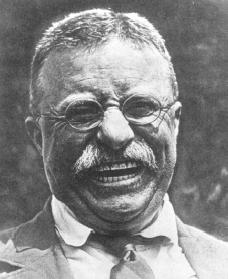In Matthew 11.2-3, we read these words: “Now when John heard in prison about the deeds of the Christ, he sent word by his disciples and said to him, ‘Are you the one who is to come, or shall we look for another?’”

John the Baptist has been put in jail by Herod. The depraved Herod had stolen his brother’s wife and married her, and John—being a man of God—naturally condemned this wickedness. And so he found himself in prison.
It must be especially hard on John being cooped up in jail. He has spent his ministry out of doors, breathing in God’s good air and feeling the warmth of His sunshine. Now he is confined between four walls.
He has had a remarkable career; he has done magnificent things for God; he has prepared the path for Jesus himself; but John’s career, and his life, are almost over. And now he does something which is startling, something which almost disappoints us.
He sends messengers to Jesus to ask if Jesus is really the Messiah after all.
Some find this troubling. Why would John doubt now? Some even think that John wasn’t really doubting himself, but was simply asking on behalf of his own disciples, so they will start following Jesus. Others think John knew that Jesus was the Messiah but was impatient for him to reveal Himself and establish His kingdom.
But probably the best explanation is the most obvious. In the dark of night, in the narrowness of his cell, as he fears for his life, in a small dark corner of his mind, John begins to have doubts. He had gambled everything on Christ. Had he gambled his life for nothing?
There is no indication that Jesus was offended or troubled by John’s question. Though Christ was never shy about pointing out lacking faith when he encountered it, He does not accuse John of a lack of faith. Rather, Jesus soon launches into a discourse praising John, referring to him as something “more than a prophet” and declaring “among those born of women there has arisen no one greater than John the Baptist.” (vss 9, 11) Jesus did not hand out compliments lightly; His admiration for John was real.
The answer which Jesus gave to John’s question is particularly moving. When John’s emissaries asked if Jesus was the Messiah, Jesus replied:
“Go and tell John what you hear and see: the blind receive their sight and the lame walk, lepers are cleansed and the deaf hear, and the dead are raised up, and the poor have good news preached to them. And blessed is the one who is not offended by me.” (11.4-6)
This was a coded message, containing snatches of Old Testament prophecy, from the book of Isaiah (chapter 35 and 61). This was the job description of the promised Messiah. John would have understood exactly what Jesus meant.

Jesus was affirming that He was indeed the Messiah. So John had chosen right. His gamble had paid off. He had risked his soul on Jesus and, though he was about to lose his life, he was about to gain everything. John’s career, his life, had not been in vain.
And so we are reminded of the trustworthiness of Christ. We too can build our lives upon Him—stake our souls upon Him. Thus Paul, not long before his own appointment with the executioner, could say:
“I know whom I have believed, and am persuaded that he is able to keep that which I have committed unto him against that day.” (2 Timothy 1.12/KJV)
Stake everything on Jesus. Peter assures us that “there is salvation in no one else, for there is no other name under heaven given among men by which we must be saved.” (Acts 4.12)






















